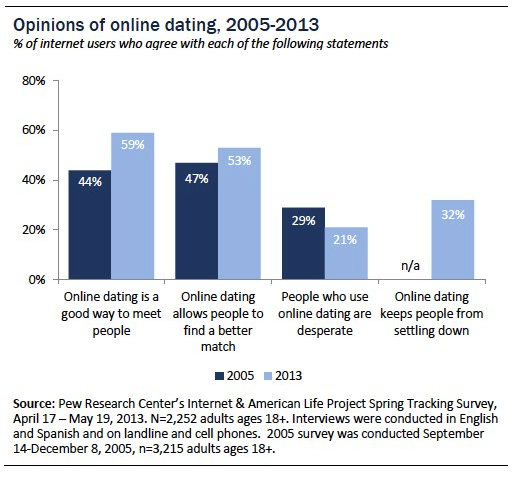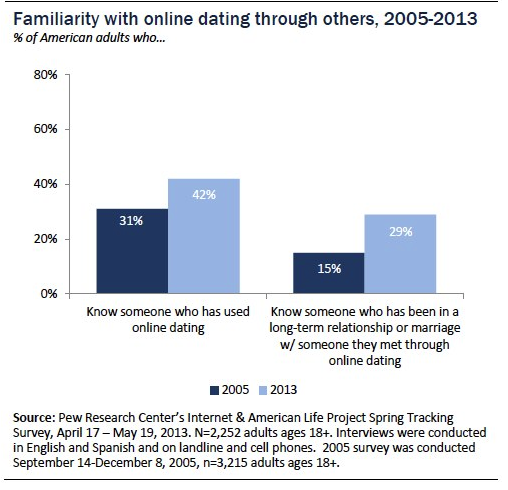How online dating won America's heart
The practice has lost much of its stigma


A free daily email with the biggest news stories of the day – and the best features from TheWeek.com
You are now subscribed
Your newsletter sign-up was successful
It used to be that online dating was considered a pathetic last resort for the lonely, an emotionless digital substitute for the real thing. Yet now, as more and more dating sites sprout up catering to ever-more specific interests — Cougar Life, anyone? — the practice of clicking your way to a mate has begun to lose its stigma, becoming both more socially acceptable and more commonplace.
One in ten Americans have used an online dating site or app, according to a Pew study released Monday. When pared down to e-dating's target demographic, though, the prevalence becomes even more pronounced. Twenty-two percent of Americans 25 to 34 years old have used a dating site, as have 38 percent of all adults who are currently single and seeking a partner.
At the same time, more Americans have begun to view online dating as a perfectly normal place to spark a relationship. Six in 10 now say online dating is good way to meet people, up from 44 percent who said the same back in 2005. On the other side, the percentage of people who think online dating is for the "desperate" has dwindled.
The Week
Escape your echo chamber. Get the facts behind the news, plus analysis from multiple perspectives.

Sign up for The Week's Free Newsletters
From our morning news briefing to a weekly Good News Newsletter, get the best of The Week delivered directly to your inbox.
From our morning news briefing to a weekly Good News Newsletter, get the best of The Week delivered directly to your inbox.

It's a self-reinforcing phenomenon, too. As more people join dating sites, more people will know someone who use such services, making them less foreign. People in every single demographic group, according to Pew, are more likely now than in 2005 to know an online dater.

That's all despite the fact that online dating remains as much of a mine field as ever. More than half of online daters (54 percent) said someone had "seriously misrepresented" himself or herself in a dating profile, while 28 percent said someone had made them feel "harassed or uncomfortable."
Those have long been some of the most pointed critiques of online dating, that some creep could slap together a profile touting phony credentials topped with a headshot of a Calvin Klein model. There's also the concern that online dating is a narrow, reductive means of finding a match, since users are typically paired up after answering a few somewhat arbitrary questions.
The sites thus "assume that we can just plug our metadata into a computer, run it through an algorithm, scroll through a list of prospects sorted by the mathematical possibility that we'll get along, and find someone," wrote Slate's Amanda Hess. "That's just not how human relationships work — not on the internet and not off."
A free daily email with the biggest news stories of the day – and the best features from TheWeek.com
And while online dating has become more commonplace, there remains a "sizable minority" who view it unfavorably, according to Pew.
"Even some online daters seem to find both the process itself — and the individuals they encounter on these sites — distasteful," Pew wrote.
Nevertheless, young, single adults are increasingly seeking out a potential paramour on the web. As the services gain traction on mobile devices — only three percent of adults have used a dating app, compared to 10 percent among those 25 to 34 years old — that number should continue to go up and up.
Jon Terbush is an associate editor at TheWeek.com covering politics, sports, and other things he finds interesting. He has previously written for Talking Points Memo, Raw Story, and Business Insider.



